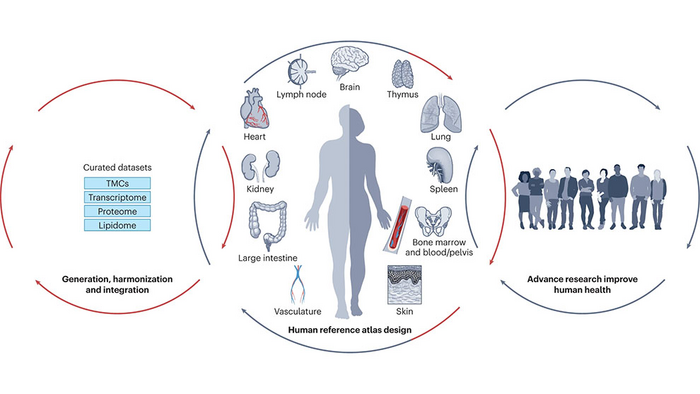Bar Harbor, ME/Farmington, CT—Multiple researchers at the Jackson Laboratory are taking part in an ambitious research program spanning several top research institutions to study senescent cells. Senescent cells stop dividing in response to stressors and seemingly have a role to play in human health and the aging process. Recent research with mice suggests that clearing senescent cells delays the onset of age-related dysfunction and disease as well as all-cause mortality.

Credit: The Jackson Laboratory
Bar Harbor, ME/Farmington, CT—Multiple researchers at the Jackson Laboratory are taking part in an ambitious research program spanning several top research institutions to study senescent cells. Senescent cells stop dividing in response to stressors and seemingly have a role to play in human health and the aging process. Recent research with mice suggests that clearing senescent cells delays the onset of age-related dysfunction and disease as well as all-cause mortality.
Could therapies that remove senescent cells—called senotherapeutics—also improve the health of humans as we age? Answering this question and more has the potential to significantly advance human health, and the National Institutes of Health (NIH) has launched an extensive research initiative for this very purpose.
The SenNet Consortium, a collaboration of institutions from throughout the United States, was initially launched in 2021 with centers established to gather and analyze human data. The researchers will collect and analyze 18 tissues from healthy humans across lifespan to discern the full scope of senescent cells and how they may contribute to the aging process. The work of the SenNet Consortium was recently presented in a paper published in Nature Aging.
Along with colleagues from Mayo Clinic, University of Texas Health Science center at San Antonio, and UConn Health, JAX Professor Paul Robson, Ph.D. is taking part in the mapping of four human tissue types (kidney, adipose, pancreas, and placenta) within the KAPP-Sen Tissue Mapping Center. The Robson Lab also leads the Biological Analysis Core, and the Data Analysis Core of KAPP-Sen TMC is led by JAX Associate Professor Duygu Ucar, Ph.D., and JAX Professor Jeff Chuang, Ph.D.
SenNet has also grown over the past year to add mouse-focused investigators, and JAX was designated as a Tissue Mapping Center (TMC) for SenNet in August 2022, supported by a four-year, $10.7 million grant from the National Institute on Aging. JAX-Sen is led by Professor and Maxine Groffsky Endowed Chair Nadia Rosenthal, Ph.D., FMedSci with co-principal investigators Robson, JAX Associate Professor Ron Korstanje, Ph.D., and UConn Health’s Ming Xu, Ph.D. Associate Professor Sheng Li and Principal Computational Scientist Matt Mahoney lead the Data Analysis Core of the JAX-Sen TMC.
JAX is poised to make substantial contributions to SenNet by profiling senescent cells in kidney, placenta, pancreas, and heart, all tissues that are relevant to chronic diseases of aging. The team will draw upon its genetically diverse mouse resources, including Diversity Outbred mouse populations, to model a range of molecular senescence traits, as well as inbred mice specifically engineered to help visualize senescent cell subsets.
As three of the tissues (kidney, pancreas, and placenta) in the mouse JAX-Sen TMC are shared with the human KAPP-Sen TMC, these efforts align well with the JAX institutional initiative to continue to build the human-mouse interface. The goal of SenNet goes beyond building an atlas of senescent cells in the body and knowing more about senescent cell biology. The potential benefits of senotherapeutics for healthy human aging are exciting, as are other possible clinical advances, such as identifying individuals at higher risk for age-related disease.
About The Jackson Laboratory
The Jackson Laboratory is an independent, nonprofit biomedical research institution with a National Cancer Institute-designated Cancer Center and nearly 3,000 employees in locations across the United States (Maine, Connecticut, California) and Japan, as well as a joint venture in China. Its mission is to discover precise genomic solutions for disease and empower the global biomedical community in the shared quest to improve human health. For more information, please visit www.jax.org.
Journal
Nature Aging
Method of Research
News article
Article Title
NIH SenNet Consortium to map senescent cells throughout the human lifespan to understand physiological health
Article Publication Date
20-Dec-2022




